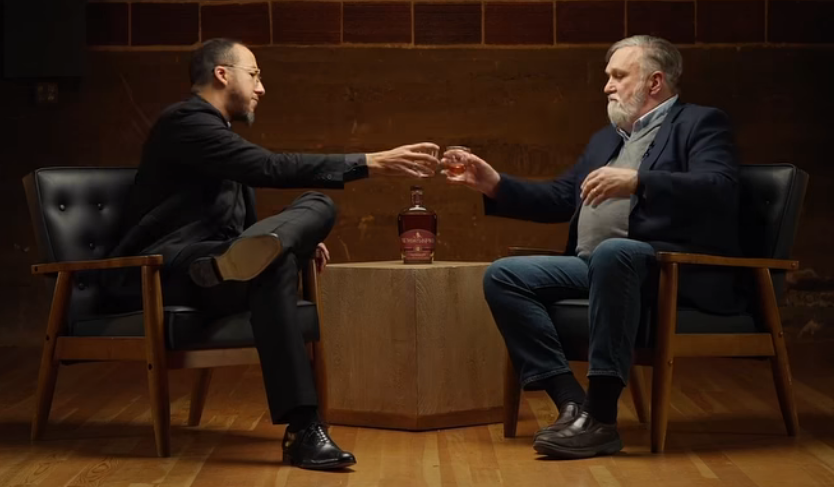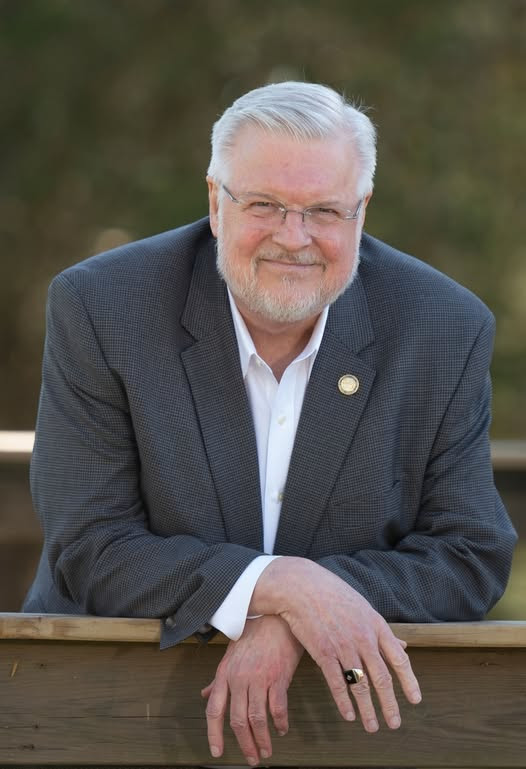by Rev. Mark Creech
RevMarkCreech.org
Not long ago, a promotional image circulated online showing two well-known clergymen seated across from one another in leather chairs, glasses of whiskey in hand, captured mid-toast. It came from a Canon Press program where Pastor Doug Wilson and Anglican priest Calvin Robinson discussed hierarchy and egalitarianism.
I hold both men in high regard and appreciate much of their teaching, though I differ in certain areas. They are articulate defenders of orthodox Christian doctrine, champions of biblical authority, moral clarity, and courage in an age of compromise. I do not presume to match their scholarly depth. Yet their friendly toast, however innocent it may seem, raises a critical question about the witness of spiritual leaders in a culture already awash with intoxicants.
The scene may seem harmless to many – two giants of Christian intellectualism conversing about theology over a drink. Yet the image is jarring for others, especially those who still regard the pulpit as a sacred trust. It symbolizes something far more profound than casual camaraderie. It shows how easily ministers can blur the boundaries between the holy and the common, the pure and the profane. And let me be plain: liquor (strong drink) is common – it belongs to the lower life, not the life set apart for God.
Few actions shape public perception more powerfully than the personal conduct of spiritual leaders. While Bible scholars may debate whether the Bible explicitly forbids alcohol use, it is undisputed that it calls ministers to a far higher standard – one of wisdom, example, and holiness.
A minister’s influence extends far beyond his own conscience. When a pastor drinks, he may embolden others who lack his restraint. What begins as liberty for one may become license for another, and even lead to ruin. Paul warned, “It is good neither to eat flesh, nor to drink wine, nor anything whereby thy brother stumbleth” (Romans 14:21). The shepherd’s duty is not to assert his freedom but to guard the flock, even through voluntary self-limitations.
I want to say something striking! Alcohol, in today’s culture, is inseparable from abuse, addiction, and moral collapse. To partake publicly is to blur lines that Scripture calls us to keep clear. Proverbs calls wine “a mocker,” and the wise are told not even to look upon it when it ferments (Proverbs 20:1; 23:31). Even if a Christian were to imbibe without sin, his public consumption normalizes a destructive symbol for millions enslaved by it. This is a fact!
Throughout the Bible, those set apart for sacred purposes were called upon to abstain. Priests entering the tabernacle were forbidden from drinking lest they confuse the holy with the unholy (Leviticus 10:8-10). Like John the Baptist, Nazarites abstained as a sign of devotion (Numbers 6:1-4; Luke 1:13-15). I suggest that the Ministers of Christ, entrusted with the care of souls, should exemplify the same kind of consecration. In an age drowning in moral confusion, the church’s leaders should not sip from the same cup that inebriates the world.
The unbelieving world often searches for reasons to discredit the faith. There are many things a minister can do to risk clouding the gospel’s credibility, but when a minister joins in drinking, few things are as much a stumbling block. What message does it send when the preacher who proclaims freedom from bondage in Christ participates in a practice that binds so many? Abstinence is not prudishness but a testimony of compassion and moral discipline.
Christian maturity is not measured by what one can do, but by what one willingly forgoes for the sake of love. Paul declared, “All things are lawful unto me, but all things are not expedient” (1 Corinthians 6:12). For those in positions of higher visibility for the gospel’s sake, the principle of what is beneficial and edifying, not merely what is permissible, should guide the conscience. The minister who refrains from alcohol loses nothing of worth but gains ethical credibility, clarity, and respect.
In a culture that celebrates intoxication, the leader who abstains stands as a living contradiction to the spirit of this age. His abstinence is a light for those stumbling in the darkness of addiction issues – those with a proclivity to use and abuse alcohol – even those who have overcome and practice a life of sobriety, but are subject to falling back into the old life again. Even if others exercise their liberty, the pastor’s calling demands so much more – not merely what is permissible, but what is profitable; not simply what is allowed, but what most honors Christ.
That conviction has guided many of us in Baptist life and beyond. I remember attending the State Baptist Convention in Greensboro, North Carolina, many years ago. At the time, the Convention overwhelmingly approved a motion to “study a policy concerning the social use of alcohol.” The motion, offered by Pastor Tim Rogers of Ebenezer Baptist Church of Indian Trail (a resolution I spoke in favor of adopting), was not about legalism; it was about leadership. Rogers voiced what many Baptists felt: that a generation of pastors had begun to justify social drinking as a mark of their maturity or relevance. Some even argued that refusing a drink might hinder evangelism. Rogers rightly called such reasoning “an absurdity placed before us under the banner of freedom in Christ.”
Similar compromises have appeared elsewhere. In 2013, the Moody Bible Institute, once an unimpeachable symbol of evangelical conviction, quietly lifted its ban on alcohol for faculty and staff. Students are still prohibited from drinking, yet their teachers may now partake off campus. The double standard is glaring: those called to model holiness may indulge in what they forbid their pupils. What was once unthinkable in a Bible institute is now excused as a matter of “biblically informed conscience.” But the lesson seems clear for a generation learning from their example – the separated Christian life for ministers can be negotiable.
These trends reflect a broader drift in evangelical life: the surrender of biblical wisdom to cultural accommodation. When ministers and institutions begin to mimic the world’s standards rather than model heaven’s, they lose their prophetic voice. The issue is not merely about alcohol but about being a good example.
The apostle’s question still pierces the conscience: “All things are lawful unto me, but all things are not expedient” (I Corinthians 6:12). The truest freedom is found not in indulgence but in self-denial. In this hour, when the church’s credibility often wanes and her witness is desperately needed, the greater wisdom is not to claim liberty but to demonstrate love – love that abstains for the sake of others, love that honors Christ above all.
The church’s leaders should not sip from the same cup that intoxicates the world.
[Photo Credit: Screenshot from Canon Press’s “Man Rampant” episode “Nice, A Heresy,” featuring Doug Wilson and Calvin Robinson. Used under fair use for commentary.]


